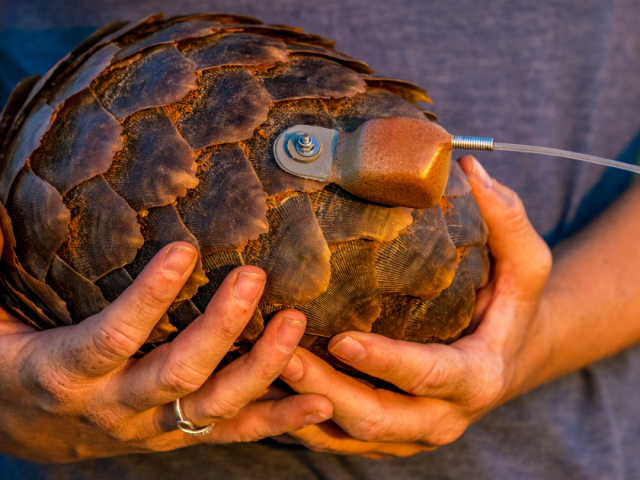This article originally appeared in the Mail and Guardian.
How do we steer a path towards Africanfuturism, away from colonial narratives of what is fit for Africa? Laura Pereira (with insight from her colleagues) argues that retrieving indigenous knowledge through storytelling and exploring transdisciplinary visioning in Africa allow for a more radical way of thinking about possible sustainable futures.
“Africa is absent from the future. In almost every future, dystopian or utopian, there is a continent-sized hole in the story. In fact, Africa often ends up epitomizing ‘the intractable, the mute, the abject, or the other-worldly… an object apart from the world, or a failed and incomplete example of something else’ (Mbembe and Nuttall 2004: 348).” (Pereira et al 2021: 1)
On what is a vision of an African future for Africans based? Despite the fiction of a post-colonial world, dominant colonial perspectives continue to dictate what is aspirational, which values are important and what futures are possible for Africa. This narrow focus is detrimental not only to the continent, but the world. It misses the diverse possibilities that local cultures and traditions could offer, and it does not allow for the creative imagining of radically transformative alternatives. As we have globalised, the world has become limited in our ability to imagine different futures, defaulting to what can be projected or what is considered most likely by a powerful few.
Such dominant narratives determine the limits of what is considered “preposterous” and “preferable”, and so lay out the path of a projected “business as usual” future (Voros, 2017), relegating other visions and options to the margins. This narrows our ability to think of radical alternatives that might help get us onto a more sustainable and just pathway for the planet. Examples of such narratives include the notion that economic growth is inevitable- as well as desirable, and that the capitalist system despite its flaws will never die. Media valorise celebrity lifestyles that are supposed to be aspirational despite often being socially and environmentally unsustainable. Progress is measured by modernization, whilst indigenous farming practices are deemed unable to feed the world. With all these powerful stories around, it’s no wonder we find it difficult to break out and engage our imaginations to envision radically different alternatives. But this is becoming more relevant and even encouraged in formal arenas of global environmental assessments whose goal is to warn of possible dystopic futures so we can make better decisions to avoid them.
As the media and academic discourse clamours for ‘transformative change’ to get us onto a more sustainable pathway, to keep us within a ‘safe operating space’ for the planet, to address the existential threat that is climate change and to halt biodiversity loss, it begs the question: what could these futures look like if we were to draw on the rich creativity that the diversity of the world’s people offer? And, more importantly, is there a way to leverage this to attend to the “continent-sized hole” when thinking about African futures from an African perspective, or how Africa can inspire global pathways? To start us on this journey, a network of organisations under the umbrella of “Future Ecosystems for Africa” is embarking on a programme of revisioning African futures by, among other things, drawing on data developed within Africa, drawing on ethical systems and ways of valuing biodiversity from within Africa, integrate ecological, social and economic information, and engage multiple audiences. A first step of this endeavour is to recognise how much our current ways of thinking about the future are clouded by Western, positivist perspectives and to try open up to a decolonial praxis in how we think about the future, especially human-nature relationships on the African continent.
What does a decolonial futures approach for the African continent entail?
At the Berlin conference of 1884-1885, Africa was carved up between colonial European nations. This rupture of a continent has left an indelible legacy on its nature, cultures, politics and peoples. But this colonisation was also the product of stories of racial and religious superiority, industrial progress, and suppression of local people over centuries, which imposed a negative connotation on all aspects of Africanness. Unfortunately, despite African countries gaining independence in the mid-late 1900s, these stories have yet to be decolonised, becoming almost myth-like in how they foment Afro-pessimism. However, we can strive to dismantle and unlearn these narratives as we attempt to envision and enact a different future for Africa.
As part of the Future Ecosystems for Africa Project, we have argued in a submitted paper that addressing the marginalisation of African knowledge systems and the people who practice them is of critical importance in the shift towards a more equal development agenda that values diversity. As the world struggles to navigate towards meeting the UN Sustainable development goals by 2030, alternative ideas and pathways away from current trajectories and aspirations need to be explored. We offer that a turn to Africanfuturism (not Afrofuturism which emphasizes more of a diaspora perspective) that is rooted in African experience, aesthetics and values as presented in African speculative fiction, could be a starting point for this decolonial journey into the unknown. As Ivor Hartmann, editor of the AfroSF anthology argues:
“If you can’t see and relay an understandable vision of the future, your future will be co-opted by someone else’s vision, one that will not necessarily have your best interests at heart. Thus, Science Fiction by African writers is of paramount importance in the development and future of our continent.” (Ivor Hartmann, 2012 )
Colonialism dismissed African worldviews as mumbo-jumbo. This is despite a flourishing legacy of indigenous knowledge of time, space, the cosmos and technology. The concept of ‘sankofa’ which entails retrieving and drawing on pasts that are deeply connected to land and the ancestors in order to progress into the future, is a powerful heuristic for a decolonial futures praxis that starts by acknowledging the past. Such indigenous frameworks are now being rediscovered particularly in science fiction futures, illustrating a legacy of technological curiosity and scientific practice on the continent. African science fiction is rapidly growing and already constitutes a rich source of creative thinking that is grounded in everyday African realities. Wole Talabi’s roundup of his favourite African science fiction and fantasy shorts provides insights into this way of thinking by highlighting the plethora of fantastic speculative fictions emerging from the continent.
As we search for creative solutions to urgent environmental crises and alternate global futures that include a thriving Africa, let us make use of all the vivid tools that we have at our disposal on this continent to craft visions of an African future for Africans. Let our stories intertwine natural science with local knowledge and anthropocentrism with multispecies imaginaries to envision a more habitable future for us all. Without this, we will not hold on to the agency that we need to protect our landscapes from perpetual pillage or to prevent us from becoming the world’s waste dump. Can you awaken your creativity to imagine desirable futures for the continent?
With many thanks to Naomi Terry, Charne Lavery, Bwalya Chibwe, Nedine Moonsamy, Chinelo Onwaulu, Azucena Castro and Geci Karuri-Sebina for their insights and conversations that helped to shape this thinking. Much of the argument in this piece are based on a paper submitted to Vector, entitled Mosquitoes, mushrooms, magic: Africanfuturist scifi for nature’s futures.
Additional News
Pangolins are elusive and heavily trafficked. At Tswalu, researchers are working to uncover their secrets and aid conservation.
Declining Sparrow-Weavers may threaten other birds that rely on their old nests for shelter.





